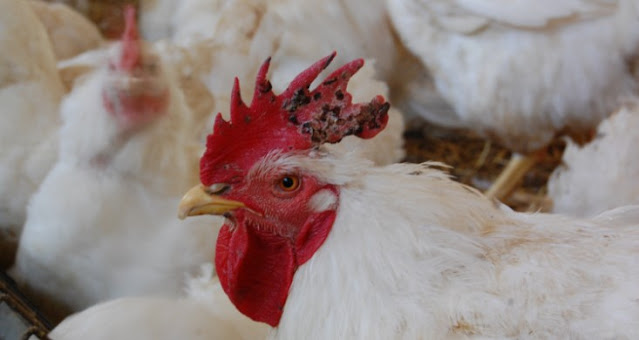WRITER: RANA TALHA
Fowl pox, a viral poultry disease caused by the avian pox virus, is a common concern for chicken keepers worldwide. While it can affect various avian species, chickens are particularly susceptible. In this article, we'll delve into the details Can fowl pox kill chickens? whether it can be fatal for chickens.
What is Fowl Pox?
Fowl pox is a highly contagious viral infection that manifests in two forms: cutaneous (skin) and diphtheritic (wet). The virus is primarily spread through mosquito bites, contaminated feed and water, and direct contact with infected birds.
Symptoms of Fowl Pox:
Cutaneous Form:
Pox lesions on combs, wattles, and unfeathered areas.
Scabby, wart-like growths on the skin.
Decreased appetite and reluctance to move.
Diphtheritic Form:
Lesions in the mouth, throat, and respiratory tract.
Difficulty breathing and swallowing.
A decline in egg production for laying hens.
Can Fowl Pox Be Fatal?
In general, fowl pox is not directly lethal to chickens. Most birds can recover from the infection with proper care, nutrition, and supportive treatment. However, there are instances where the disease can lead to complications, making the birds more vulnerable to secondary infections.
Chicken keepers must be vigilant and address fowl pox promptly. The diphtheritic form, in particular, can pose a higher risk, especially if lesions obstruct the airways or affect the bird's ability to eat and drink.
Preventing and Managing Fowl Pox:
Vaccination:
Vaccinating your flock is a proactive measure to prevent fowl pox. Consult with a veterinarian to determine the appropriate vaccination schedule for your chickens.
Mosquito Control:
Implement mosquito control measures to reduce the risk of transmission. This includes eliminating standing water where mosquitoes breed and using mosquito-repelling methods.
Isolation and Supportive Care:
Isolate infected birds to prevent the spread of the virus.
Provide a balanced diet to boost the immune system.
Ensure access to clean water and a stress-free environment.
Good Hygiene Practices:
Maintain a clean coop and surroundings to minimize the risk of fowl pox transmission.
Conclusion
While fowl pox can cause discomfort and impact the overall health of chickens, it is not typically a direct cause of death. Timely intervention, proper care, and preventive measures such as vaccination are crucial in managing and mitigating the impact of fowl pox on your flock. Stay informed, monitor your chickens regularly, and consult with a veterinarian for professional guidance on disease management.
Remember, a proactive approach to fowl pox can go a long way in ensuring the well-being of your feathered companions.




.jpg)
.jpg)

0 Comments